The Russia-Ukraine ConflictThe Russia-Ukraine Conflict
Chapter 10
Massacre in Bucha - A war crime?
by Emily Feininger
Massacre in Bucha (1/5)
What happened?
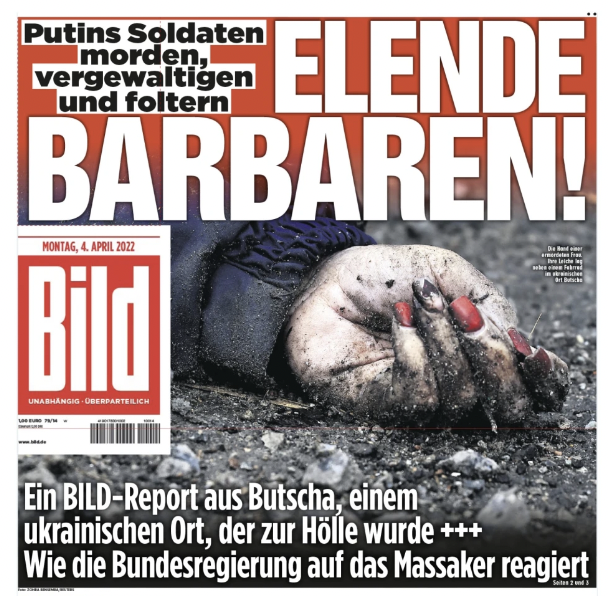
https://www.bild.de/politik/ausland/politik-ausland/das-grauen-von-butscha-diese-hand-gehoerte-einer-liebenden-mutter-79686690.bild.html
Headline of Bild, a German nationwide daily newspaper, from April 4, 2022: "Wretched Babarians!"
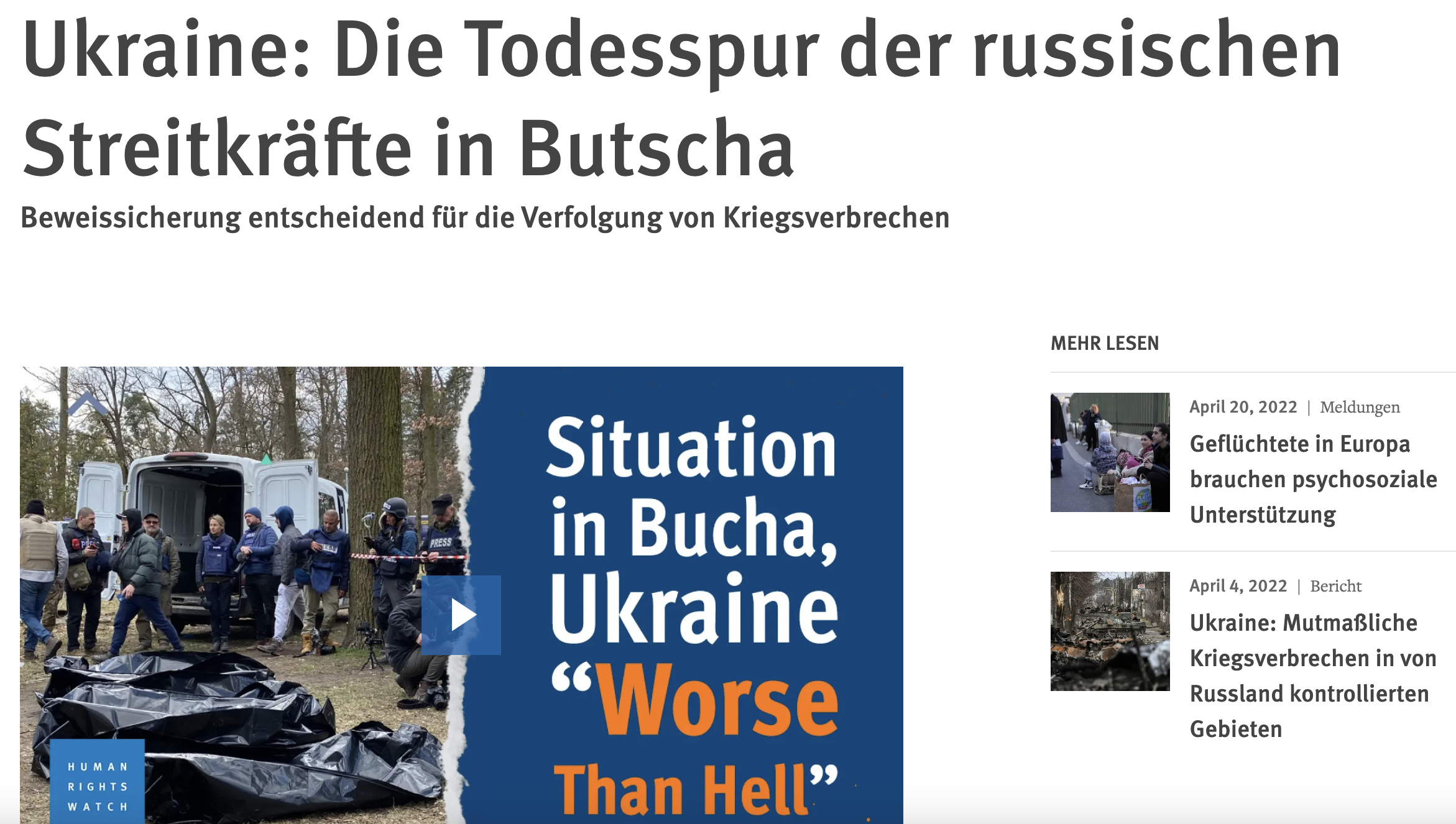
https://www.hrw.org/de/news/2022/04/21/ukraine-die-todesspur-der-russischen-streitkraefte-butscha
Illustration: Marlin Beringer
Since the beginning of the war, reports of possible war crimes have repeatedly caused horror. For example, 458 civilians were allegedly killed in Bucha, a suburb of Kyiv. Reports by the UN and NGOs such as Human Rights Watch and Amnesty International document these atrocious acts.
The reports refer to the large number of civilians allegedly deliberately killed and civilians allegedly tortured. There are also reports of suspected looting and isolated rapes and executions.
Massacre in Bucha (2/5)
Protection based on the Geneva Conventions
Illustration: Marlin Beringer
Bucha was under the control and thus occupations by the Russian armed forces at the time of the alleged crimes. The Ukrainian civilian population of the occupied territory is protected by the Fourth Geneva Convention.
Serious violations of their rights, such as the targeted shelling of civilian objects or the use of force against civilians, constitute a war crime.
Massacre in Bucha (3/5)
What is a war crime?
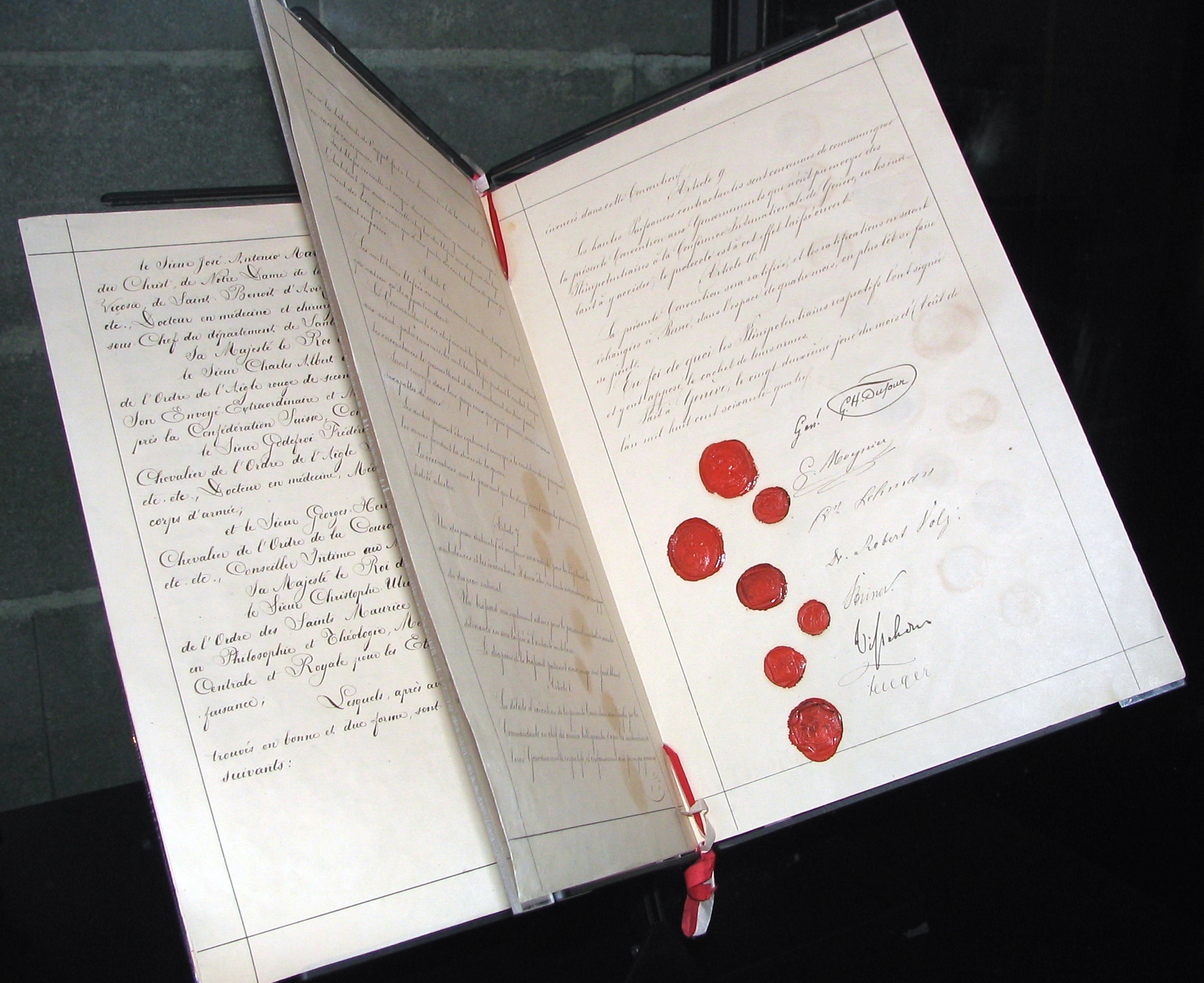
https://commons.wikimedia.org/w/index.php?curid=359407
Document of the 1st Geneva Convention of 1864
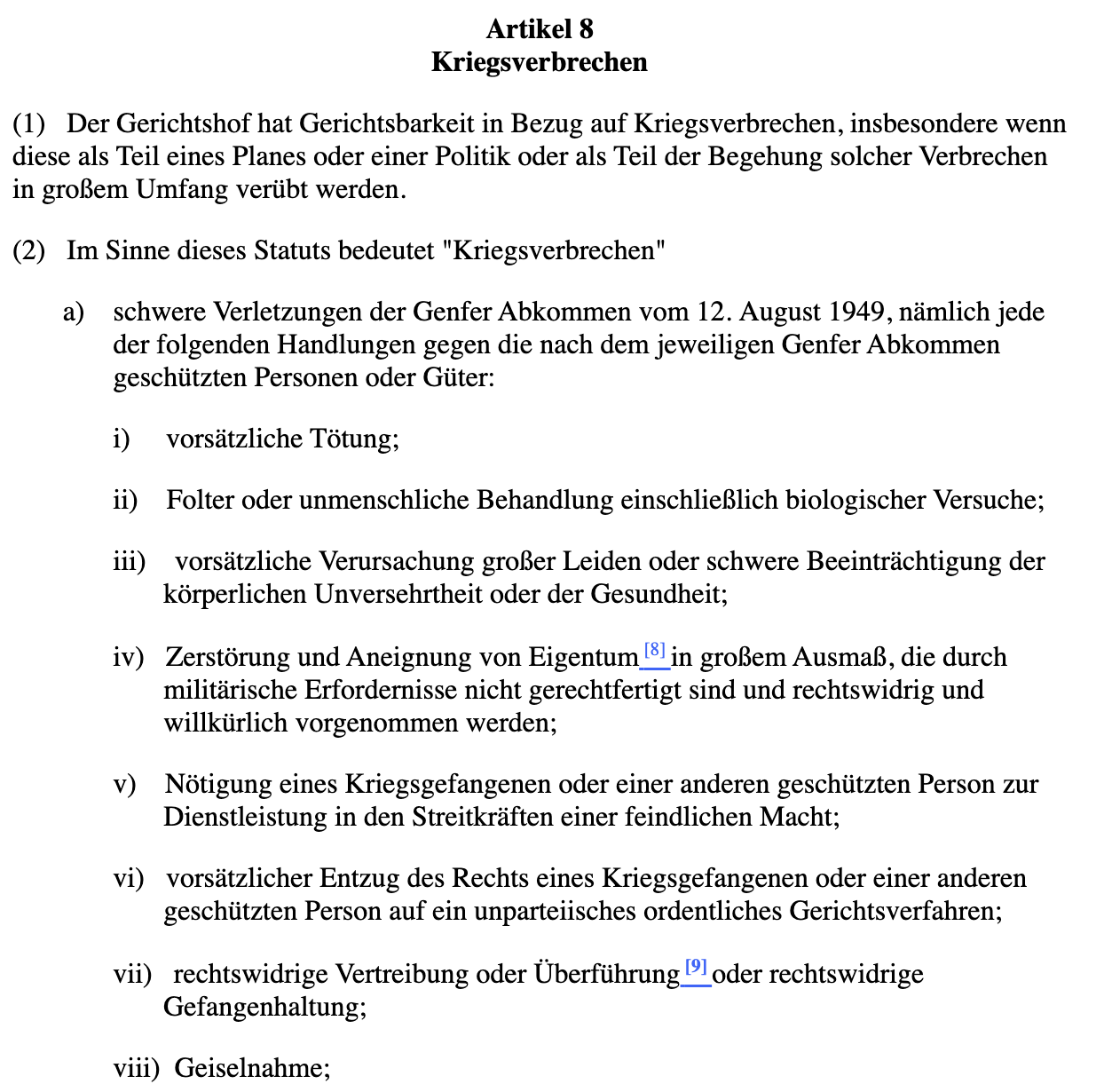
Art. 8 Rome Statute
War crimes are intentional serious violations of the Geneva Conventions by individuals. These war crimes under the Geneva Conventions can be summarized in the following groups: War crimes against persons, property and other rights, war crimes against humanitarian operations and the use of prohibited methods and means of warfare.
Some of these war crimes under the Geneva Conventions are also punishable under the Rome Statute of the International Criminal Court in The Hague. The Court can, for instance, prosecute and condemn individual commanders for committing war crimes.
Massacre in Bucha (4/5)
The role of the International Criminal Court

https://commons.wikimedia.org/w/index.php?curid=47958553
Building of the International Criminal Court in The Hague
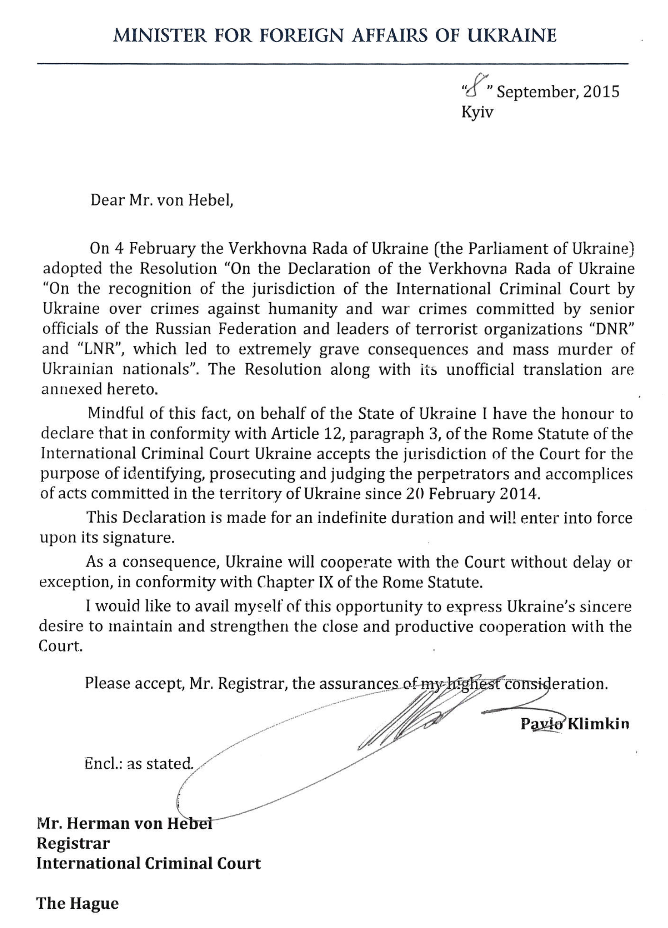
https://www.icc-cpi.int/situations/ukraine
Illustration: Marlin Beringer
The International Criminal Court and the Rome Statute play an important role in the prosecution of international crimes committed by individuals. States have authorized the Court to prosecute selected crimes such as war crimes or genocide.
Initially, national prosecution authorities should conduct proceedings independently. If they are unwilling or unable to do so, the International Criminal Court and its office of the prosecutor can intervene.
Ukraine, which like Russia never agreed to and acceded to the Rome Statute as a state party, already recognized the jurisdiction of the Court after the first Russian invasion and annexation of Crimea in 2014. In addition, 39 state parties to the Statute, including Germany, have requested international investigations under the Rome Statute.
This allows the Office of the Prosecutor of the International Criminal Court to start investigations. Since March 2, 2022 it is now investigating the situation.
Massacre in Bucha (5/5)
Can the alleged perpetrators be charged?
Illustration: Marlin Beringer
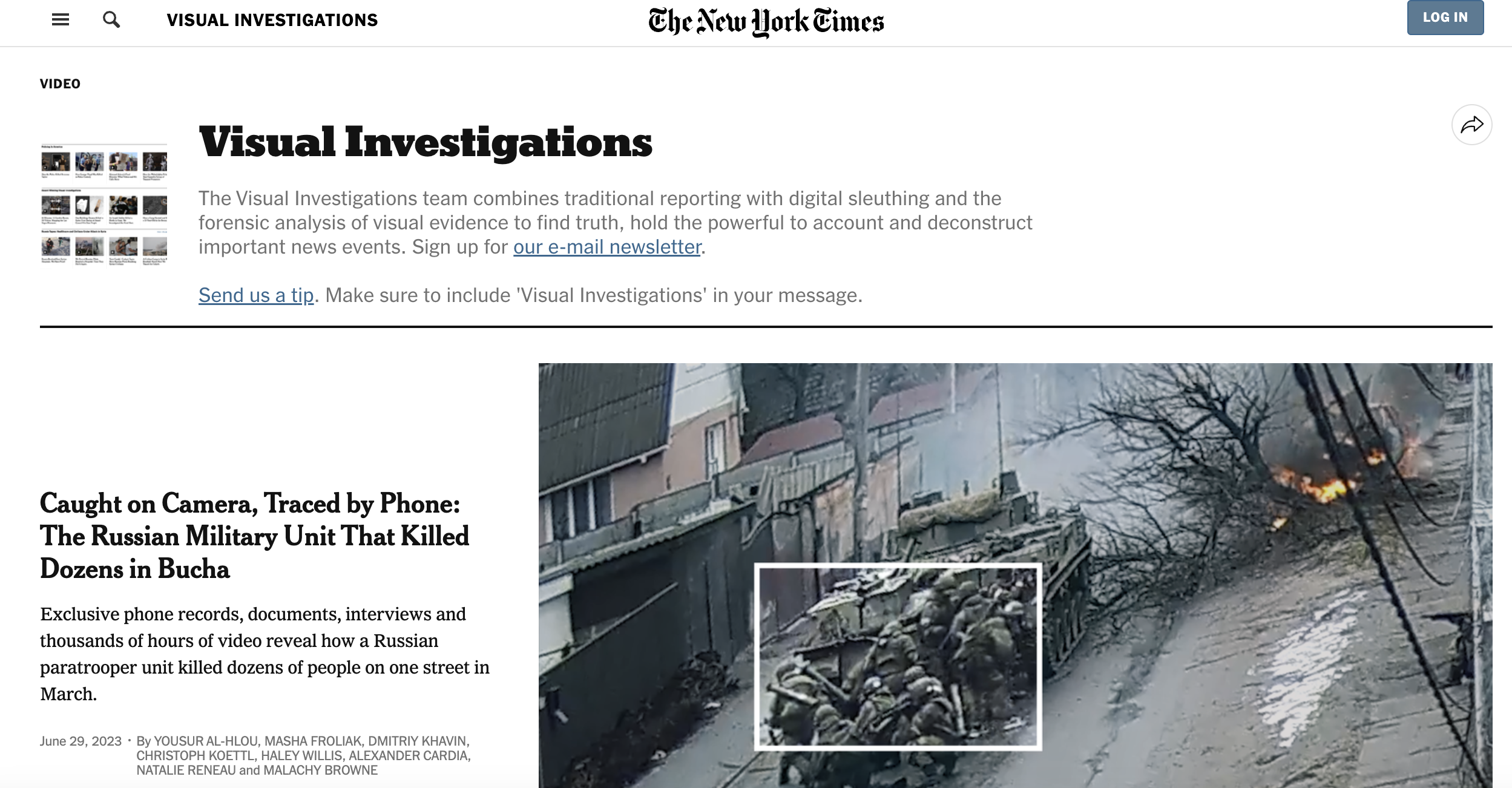
https://www.nytimes.com/spotlight/visual-investigations
Investigations into the alleged war crimes are still ongoing. In the past year, evidence was collected and exhumations were carried out in the town of Bucha. In order to properly prosecute these crimes, the alleged perpetrators must be identified. However, this proves to be difficult due to the complexity and lack of clarity: It is not always clear who did what and when.
For example, it is not always known which platoon leader gave which order to whom, or whether soldiers acted of their own volition.
A team from the New York Times has analyzed various pieces of evidence and has probably now identified those responsible, a Russian regiment. International and Ukrainian authorities are now investigating which soldier killed whom and under what orders in order to prosecute them under (international) criminal law. Only then will it be possible to decide whether charges can be brought against a specific person for specific crimes before the International Criminal Court.